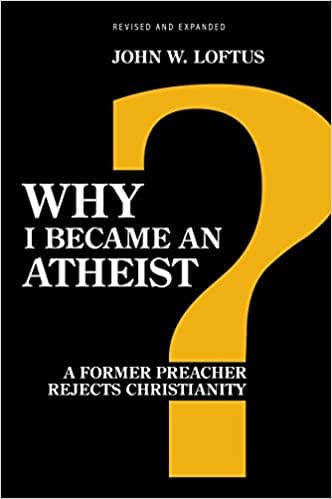
This (socratic) dialogue came about on my blog. Words of agnostic DC Kurtz will be in blue.
*****
What is your own definition of “good” and how do you (philosophically and logically) arrive at it?
Secondly, I propose a test case, in order to challenge your view of ethics and right and wrong. I will state it, ask your opinion, and then follow up with (equally important and necessary ) socratic questioning, in order to bolster my point of view (or modify it, as the case may be).
Do you think that partial-birth abortion is moral and should be protected by law? If so, why? If not, why?
For those who may not know what this is: it is the extraction of a full-term baby up to its neck, out of the womb, for the purpose of sticking scissors into the back of his or her neck, removing the brain, so as to kill [murder] an otherwise perfectly healthy would-be newborn child.
Some may be unaware of the legality of this. Full-term abortion was legal in America (one of very few — less than ten — countries to allow it) since January 22, 1973, based on the second case handed down the same day: Doe v. Bolton.
The Partial-Birth Abortion Ban Act of 2003 prohibited this diabolical procedure. In 2007 its constitutionality was upheld by the U.S. Supreme Court in the case of Gonzales v. Carhart: a 5-4 decision (Justice Kennedy, joined by Justices Roberts, Alito, Thomas, and Scalia). The late Justice Ruth Bader Ginsburg wrote the dissent, joined by Justices Souter, Stevens, and Breyer.
Somehow, despite this decision (I don’t understand how it is legally possible), blue states (such as New York) are still enacting laws upholding the “right” to kill full-term babies, whether or not through this method (there are others as well). Probably at least 80% of the American people oppose such a ghastly, brutal, heartless procedure. But the Supreme Court upheld it from 1973 to 2007, and now many state laws do.
Moreover, many liberals are in favor of the legality of killing a baby that was intended to be aborted, but survived. Such a baby would be struggling to live on a table in some “clinic” and can be killed at will, if the mother assents. This was, in fact, the on-the-record position of all the Democrat nominees for the Presidency (which includes Biden) in the 2020 election, excepting Rep. Tulsi Gabbard.
Do you agree with that? If so, why? If not, why?
My daughter-in-law gave birth to our second granddaughter early on Easter morning. Her picture was posted above in this combox. If I lived in certain states today, my daughter-in-law could have decided she didn’t want this child, and could have opted for the above procedure. Even the child’s father (our son) would have no say in it at all, Of course we wouldn’t, either, even if we (or anyone whatsoever) agreed to accept the child and raise her. The child would be killed under those laws.
Do you agree with that? If so, why? If not, why?
After you answer, I will assuredly have more questions. And (be forewarned) it’ll be a long process to illustrate why I think Christian morality is the only rational, sensible, and moral course, and why atheist / agnostic moral systems are inevitably relativistic and arbitrary, leading to many moral outrages enshrined in law, including this monstrosity of partial-birth infanticide. These are not simple discussions, They are very complex. So they take time.
We have long since surpassed the Nazis in terms of sheer numbers of murders and heartless, merciless brutality of the most savage kind. We have no business looking down our noses and feeling superior to them, seeing what we allow to take place with the sanction of law at the highest levels.
***
I also wrote on another thread:
Modern, supposedly “enlightened” humanity has the toughest time figuring out the self-evident truth that slaughtering a helpless, defenseless child and ripping him or her from limb to limb or burning him or her to death or removing his or her brain right before delivery (that’s partial-birth “abortion”) is self-evidently wrong and savage and inhumane and barbaric.
Every age has its glaring, incomprehensible moral blind spots. It was slavery in the 19th century in America, racism and anti-Semitism in 20th century America and Germany, genocide in Germany, Russia, China, Turkey, Cambodia, and other places, and abortion in our own time.
***
I believe partial-birth abortion is good because the autonomy of the individual to exercise their will in search of satisfaction of desire is paramount. Abortion, in my view, is an act of self-defense against an unwanted intruder. All romantic notions aside, a fetus is a parasitic organism that only takes from the host mother without giving anything back and with no regard to her consent. It’s existence becomes an assault on the body of the host mother the moment she no longer consents to it. Personhood is irrelevant here- a fetus has no more of a right to a woman’s body than a fully-formed and developed adult human. Indeed, the only justifiable reason for banning abortion is because a non-lethal procedure for removing unwanted fetuses exist. The father and his family do not get to take the physical burden of the fetus and its parasitism, as willing as they may be. The burden lays on the host-mother, so the choice lays with her.
1. You act as if there is no responsibility whatever towards a human being that might be created by engaging in sexual acts: as if people are so ignorant and “animalistic” that they either don’t know that a new life could be created, or if they do know, simply don’t care: up to and including killing this new person that has come about. That’s not ethical. It’s as selfish and non-loving as anything I can imagine. It’s the law of the jungle. It’s on the level — indeed on a lower level — than, say, a mother bear eating her own cub or a male bear stealing another bears’ cubs and eating them. But they are just acting on instinct. Human beings know much better than that. We have to learn to commit and rationalize away such evil as you describe.
2. How do you define a person?
3. How do you define a human being?
4. At what point does a person acquire the right to life? And on what non-arbitrary basis does this right exist?
5. At what point does a human being acquire the right to life? And on what non-arbitrary basis does this right exist?
6. Newborn babies are even more “parasitic” (to use your chilling term) than babies in the womb. He or she “only takes from the host mother without giving anything back and with no regard to her consent.” And he or she does so to the father as well. They are more or less completely helpless and dependent on parents or other caretakers to survive at all. By your reasoning, parents ought to be able to murder their newborn child, too, on the same basis: it only takes and takes and demands. All the more so for a sick child.
7. If sexuality entails no regard or responsibility whatsoever for a new person created by engaging in it and their inherent rights as a human being: up to and including murder of such a child, then on the same “ethical” basis, you have justified all sorts of similar exploitation of other human beings, for the sake of your own demand for absolutely unlimited sexuality and pleasure (in your words: the “paramount” nature of “satisfaction of desire”) without consequence.
Therefore, on the same basis, sexual trafficking and sexual slavery is justified, so is pedophilia, rape, continued sexual abuse of a minor or anyone else. The other person is only good for being exploited for our own selfish ends. And why stop at sexual exploitation? Other human beings can be used for any number of evil ends, up to and including killing them. This is the justification of every genocide that has ever occurred.
8. Such reasoning also utterly obliterates the golden rule (“do to others as you would wish them to do unto you”), which is a bedrock principle of ethics that is held in common by virtually every society and belief-system in the world and the history of the world.
9. Not only does a person who can believe such ghastly, evil things believe she “owns” her child (like a slaveholder owns a slave), but such ownership extends right to the process of being born. The child must be killed, in this “reasoning”. It’s utterly unacceptable for he or she to be born and have a normal human life. He or she cannot and will not be given up for adoption: to the millions of couples who would love to cherish and take care of him or her. That’s unacceptable. Instead, she has to be tortured and murdered, and this is even called “good.” This is as evil and wicked of an act as can be imagined. I can’t think of anything more evil and morally revolting.
10. To top it off, in the atheist worldview, this earthly existence is all a human being has. There is no afterlife. It’s this life and then obliteration and annihilation. So in killing one’s own child, one deprives him or her of their entire earthly life and existence. The child was conceived due to sexual pleasure; the parents take no responsibility for that, and murder their own child and deprive him or her of their entire independent existence. This is using and exploiting another human being to the maximum degree imaginable.
11. How you explain why a full-term baby ought to be murdered (and your calling such a brutal and inhumane, barbaric act “good”) is as illustrative of the logical end-results of atheist ethical reasoning as can be imagined. How you answer these probing questions (that all arise because of the stand you have taken) will be even more so.
1. Before the main crux can be discussed, a distinction first has to be made that a mother bear eating her cubs is unprovoked, but a woman terminating a fetus is in response to the fetus’s unwanted presence in the body.
The woman had sexual intercourse. Anyone with the IQ above that of a pencil eraser knows that the possible result of that is the procreation of another human being (that’s why we refer to “the reproductive system”. What are we reproducing? Human beings . . .). If such a woman doesn’t want a child, then she ought to refrain from doing the thing that is the only way that brings it about.
A bear acts on instinct: having no higher moral compass. A human being knows better than to do such a barbaric, inhumane thing, based on the golden rule. That’s why human beings can potentially be far more good and saintly than the animals, but also far more wicked, as in the present case, because the higher a being is on the moral scale, the lower it can fall and be corrupted.
And I think that issue of parasitism is worth revisiting, because it creates a contradiction: there is nothing conventionally ethical about the existence of a fetus. It exists parasitically, only taking from the host mother and never giving back.
It exists because the mother chose to engage in the act that by its nature and fundamental purpose, brings about the existence of another person in the first place. Once the person exists, quite obviously, he or she is now the responsibility of those who procreated him or her. As I stated, a newborn is even more parasitic than a preborn baby. But you have ignored that: as you have most of my direct questions.
It is by all accounts a thief, taking her vitality without her consent. It is an inherently selfish being.
By all immoral and amoral accounts it is. The selfish being is the mother (with or without the father’s consent) who could torture and murder the person she helped create. You have it exactly backwards. The preborn baby is utterly innocent: having had no say in its own creation. You argue (I must say this) exactly as the Nazis did about the Jews: they were “vermin” and a parasite on superior Aryan society. Therefore, they could be exterminated at will. If one could be, then so could six million. Likewise, if one child can be murdered, so can 60 million plus be murdered, by the acceptance of the ghastly notion of “a life unworthy to be lived” and the utter rejection of any level of sexual responsibility whatsoever.
And so from there, we spiral into what I and others such as Thomas Hobbes feel is the natural state of existence- the stereotypical “law of the jungle”, a state of all against all. But unlike Hobbes, I don’t think authority can cure this condition, nor do I think a cure exists. The state as Hobbes describes it does not alleviate all-against-all, but merely privileges one or more actors over everyone else.
Precisely. This is what atheist / agnostic “morality” boils down to every time. Thanks for making my case for me. You couldn’t be doing a better job at it than you are doing.
2. Personhood I think is defined by a current or former conscious mind, the ability to experience consciousness and actively respond to it.
We don’t apply this criterion when we determine that a person has died. It’s simply heartbeat and brain waves. Your definition would deny the personhood of comatose people. But seeing how you have argued about babies, it’s likely that you would have no problem knocking off comatose people as “selfish” and “parasites” as well. On what objective basis is even your woefully inadequate definition established?
3. Humanity is simply being an organism that is a past, present, or future member of homo sapiens.
This includes preborn children, who possess every essential attribute of born people, and only require nutrition and time to become what you and I are.
4-5. At no point does an inherent right to life actually exist. The state can, will, and does kill on a whim.
Yes they do. This was the mentality of Nazi Germany, Stalin’s Soviet Union, Mao’s China, and every other tyranny and oppressive state that ever existed. It’s easy for you to sit there and casually say such bone-chilling things, since you’re not residing in a Gulag or a concentration camp, or sitting under a guillotine, waiting for the “reasoned” and godless almighty state to do you in.
Even in scripture, God has no hesitation at deploying lethal force if he desires to.
God as Creator has the prerogative to judge (and He judges justly and fairly). He’s not in the same category as we are, and we’re not perfectly good, like He is.
There is no fundamental, inherent guarantee against a premature end.
Based on what?
6. The mother has an option not to feed a fully-formed and birthed child. She has non- directly lethal alternatives to acquiescing to the child’s desires.
Yes. She can enlist a liberal blue state to kill her child after it has been born, so she is free from the outrageous burden of taking care of it. Or she can be a moral, compassionate human being and give her child to one of millions of couples who would be all too happy to care for him or her.
In the case of abortion, there is no non-lethal method of terminating a fetus. We cannot safely extract a fetus from the womb and allow it to grow to term externally of its host mother. There are non-lethal options to end parenthood, but no “clean” way out exists for pregnancy itself.
No choice but murder. What a wonderfully “enlightened” and progressive moral system . . .
7. Correct, this is the unsettling reality as unearthed by Gilles Deluze and Felix Guattari with their conception of desiring-production, and taken to the horrifying conclusions by Nick Land and subconsciously explored by Cormac Mccarthy in Blood Meridian. We are irrational creatures primarily governed by a complex system of desires which in turn produce more desires, compiling onto each other. Human existence is inherently disordered because existence itself is disordered. This is the overarching problem I posed then- how do people with two diametrically different views of the way of the world debate ethics?
I can’t sensibly debate ethics with a person who thinks exactly like a Nazi or Stalin or an ISIS terrorist does (as you do). All I can do is expose the self-evident wickedness of such thinking: to people who haven’t deliberately obliterated the image of God inside of them and their own consciences.
8. The “golden rule” is primarily a system of deterrence above all else. It’s a flawed method which has been demonstrated time and time again not to actually work, in part because of the inherent power imbalances created by states and other practical attempts at solving the human condition.
Right. Somehow I expected that you would somehow find a way to resist as fundamental and universally agreed-to moral precept as this. I do credit you for at least taking atheist moral thinking to its logical conclusion: the murder of hundreds of millions perfectly justified and considered “normal.” You make Aztec human sacrifice rituals look like a kindergarten picnic.
9. You keep jumping straight from conception to birth and overlooking the nine months in between, wherein the host mother is effectively bound and constrained by the living thing inside of them, eating away with no option for relief save termination. The value of abortion lies in the fact that it is the only way out of an unwanted pregnancy.
10. At no point is the fetus (while still human, a fetus is not yet a child) actually used. Nothing of value is derived from its existence by the host mother.
This simply repeats the same atrocious thinking you have already chillingly expressed. Mengele and Eichmann would be mightily impressed.
11. I think your understanding of ethics is rooted in the idea of a fundamentally ordered and rational world. You start with a basic understanding of a universal order and build from there. But on the other hand, my conceptualization of ethics begins with the opposite, the recognition that existence is disordered and irrational. You start at 1, I start at 0. If the outside world is irrational, illogical, and fundamentally insane, what ethical sensibility can be derived from it? There is nothing, of course. It exists as philosophical white noise. All that remains is the self, the singular essence unique to one’s own consciousness. If there is nothing sane, coherent or just about the world around us, we must instead look inward. And when we look inward what we see is desire, the driving force behind all else. Our feelings and thoughts are products of our desires. Even our reasoning is derived from our desire. Ergo, in constructing my personal ethical model, I start with my own personal desires.
This is as perfect of an explanation of atheist nihilism and despair as I have ever seen. Thank you at least for making it so clear to my readers that this is what we are dealing with today.
You ignore direct reply to many of my socratic questions, which is not unexpected, because it’s always that way, and is ultimately why Socrates himself was killed. He had to be shut up at all costs.
***
Clarifying note (I must add this because it comes up every time): I am not contending any of the following:
1) that atheists are always immoral,
2) that atheism always leads in fact to an immoral, wicked system akin to the Nazis, etc.,
3) that individual atheists are invariably always more wicked in behavior than individual Christians,
4) that atheists as a class care nothing for ethics and morality,
5) That all atheists are moral relativists.
One can see this in my response to an atheist on the thread, BensNewLogin. My initial challenge at the top was directed to him as well. But he responded very differently, He stated: “I agree with SCOTUS; viability is a good test. . . . I am no fan of abortion. I would like to see it, as Bill Clinton put it, safe, legal, and rare.” This is a vastly different outlook than that of DC Kurtz. So I replied to him in an entirely different manner:
You agree that partial-birth abortion is wrong. Glad to hear that. Because of that, you wouldn’t have to answer most of my questions that I asked DC Kurtz in my large-scale reductio ad absurdum / socratic inquiry. The burden is on him to defend it as “good” (his own description) and justified based on “satisfaction of desire” which he considers more “paramount” than the value of each human life.
DC Kurtz, on the other hand, defends even partial-birth abortion as “good” and ghoulishly describes an unwanted preborn child as “a parasitic organism that only takes from the host mother without giving anything back” and as a “thief” and (with the utmost unawareness of the supreme and sickening irony) an “inherently selfish being.”
BensNewLogin is far more humane and compassionate, while DC Kurtz literally argues like a Nazi, in effect defending their monstrous crimes and evil (since his own “moral” positions are indistinguishable from their own). BensNewLogin is, I would argue, less logically consistent, while DC Kurtz is consistent according to what I call “diabolical logic” while being wickedly immoral. He consistently follows his premise to their logical and evil end-result. G. K. Chesterton once noted that the madman is not illogical; to the contrary, he is one who thinks that logic is all there is.
And that gets back to my clarification. I don’t maintain (here or anywhere) that all atheists are wicked or that they all (or many of them) come to the chilling conclusions that DC Kurtz arrives at. That’s just stupid. What I say is that nihilism, despair, and (in practice) widespread abortion and genocide are the logical end-result of atheist relativist moral thinking. I don’t say all atheists and agnostics are relativistic (#5 above), but that system of thought is the logical end of how most atheists or agnostics think about morality and ethics. And what it logically, consistently (not necessarily actually) leads to is a Nazi-like outlook of genocide and partial-birth infanticide.
***
Related Reading:
The “Problem of Good”: Great Dialogue with an Atheist (vs. Mike Hardie) (+ Part Two) [this is my favorite debate ever, with anyone] [6-5-01]
Dialogue w Agnostic/Deist on the “Problem of Good” [7-18-18]
The “Problem of Good”: Dialogue w Atheist Academic [9-11-19]
Problem of Good: More Difficult than Problem of Evil? [4-3-21]
Problem of Good: Further Discussions with Atheists [4-5-21]
***
Photo credit: my second granddaughter (born on Easter Sunday 2021) at two or three days old. According to most Democrat politicians in the US today, including all but one of the Democrat candidates for President in 2020 (Tulsi Gabbard), and the law in many blue states right now, she could have been murdered at this age (or right before birth, by having her brain removed after being delivered up to the neck), if only she survived a botched abortion because her mother didn’t want her, and refused to give her up for adoption. This is how low we have sunk. We’re far worse than the Nazis were, because we know better. And God won’t allow such heartless, utterly cruel barbarity to continue forever before He judges it. If He incinerated the United States to ashes like Sodom and Gomorrah tomorrow, no one would have the slightest grounds to disagree with His justification for doing so.
***
Summary: I contend that (as part of the “problem of good”) nihilism, despair, and (in practice) widespread abortion and genocide are the logical end-results of atheist relativist moral thinking.
***


























